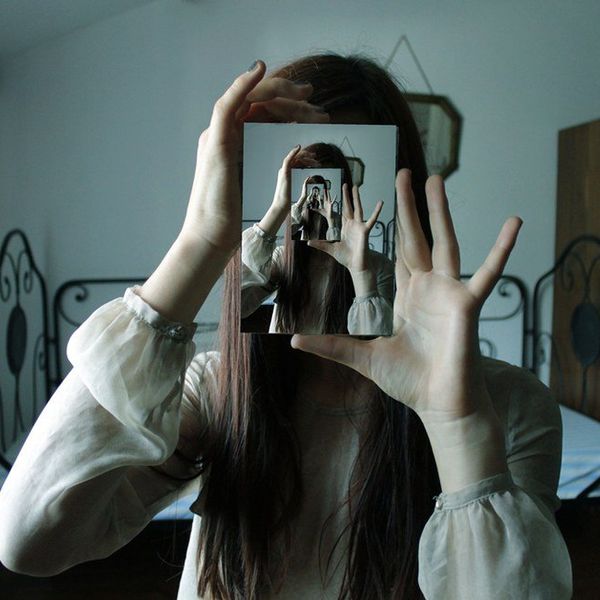I’m not shy in letting people know that I have anxiety and depression. In fact, I love being able to share my story whenever I can to help provide one more voice in the multifaceted discussion that surrounds mental illnesses and those that have them; I love being able to tell people firsthand what it’s really like to live, struggle, and cope with mental illnesses.
However, I wasn’t always this confident — I used to be very ashamed of myself. I couldn’t “show” people what I was struggling with, so I didn’t feel like I could or would be taken seriously. I didn’t understand what was “wrong” with me, and I felt broken or incomplete.
Little did I know at the time, though, that this was far from the truth; nothing was “wrong” with me, I just had illnesses that I couldn’t see. To me, this lack of physical visibility is one of the biggest reasons as to why misunderstandings about mental illnesses arise and continue to circulate. Mental illnesses don’t always directly manifest physically (hence why they’re called “mental” illnesses) so it can be hard to understand what exactly is happening. Physical illnesses impact your cells, neurons, muscles, organs, blood, bones, etc., whereas mental illnesses affect your thoughts, feelings, desires, ability and want to function, and more. Mental health issues can manifest themselves physically, but oftentimes this is an indirect result of a larger problem at hand. Things like rapid weight gain or loss, lack of or too much sleep, lethargy, rapid breathing and/or heartbeat, self-inflicted wounds, tension, nausea, twitching, dizziness, etc. can all be physical symptoms of mental illnesses, but this isn’t always the case.
Not everyone consistently or constantly experiences physical complications resulting from their mental illnesses.
While sometimes seeing is believing, it’s also important to listen to and accept people when they say they have issues related to their mental, not just their physical, health.
Another problem that the mentally ill community faces is the lasting impacts that an unsavory history has left behind. In the past, mental illnesses were never really taken at face value (which has lead to a continuity of denial) — there was always another “reason” as to why someone was, be it religious or personal.
Oftentimes, mental illnesses were deemed as punishments or possessions (yes, demonic possessions), and this negative perception continued on well into the 1900s. Mental institutions/asylums, specifically within the U.S., were underfunded and ill-equipped to best care for mentally ill people; doctors often performed dangerous and unethical surgeries, like lobotomies or forced sterilizations, on patients without much criticism (at the time) because these patients weren’t treated like or thought of as human beings (turns out that “American Horror Story: Asylum” wasn’t so far off, after all). This cruelty and lack of acceptance were, and still are, detrimental to the mentally ill.
How does this factor into today? Well, again, while attitudes towards mentally ill people have changed and programs and medications have been developed to better help them, stigmas still persist. Mentally ill people are productive members of society (unbelievable, right?), but society doesn’t portray us as such; rather, we are seen as “lazy,” “insane,” “violent,” “weak,” “broken,” and so much worse. The shame that the mentally ill community is faced with creates a great sense of isolation and marginalization, which can cause a great absence of feeling secure and confident in reaching out for help.
These labels do nothing but hurt mentally ill people and prevent us from reaching our full potential, which is why it’s so important to change the way we view and discuss mental illnesses and those who live with them. Mentally ill people are capable of so much more than people expect and think, and it’s time to talk about this.
It’s taken me years to get to where I am in accepting my mental illnesses as part of who I am and in not apologizing for them, and there are days where I still struggle with this internalized shame, anger, and fear. Nevertheless, however tiring this tug-of-war of acceptance and doubt becomes, I won’t stop sharing my experiences and opportunities because I know that they’re valid and can, hopefully, help others come to understand what stigmas mentally ill people face, where they came from, why they persist, and what we can do to dismantle them.


















